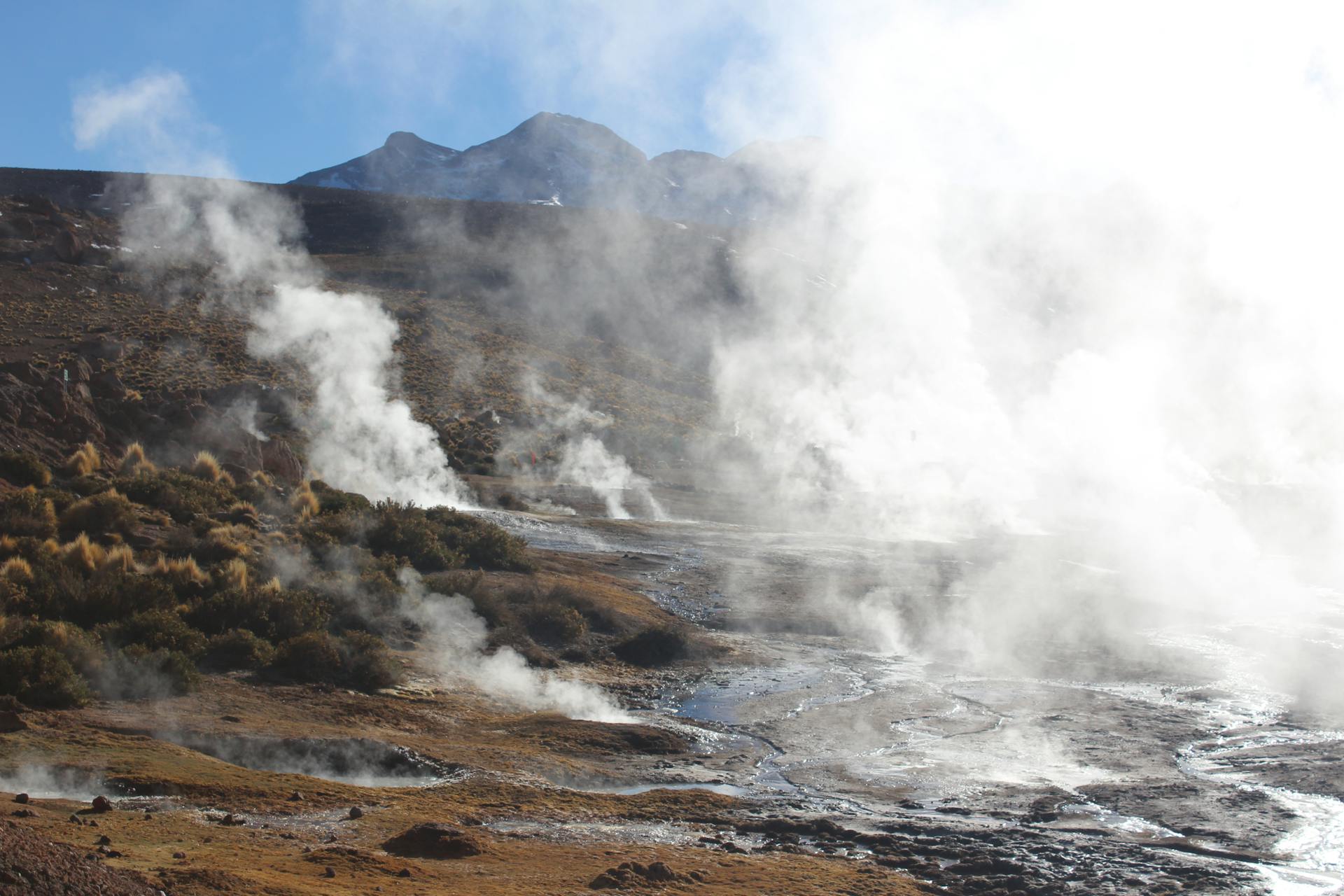
Oil prices are one of the most closely watched and analyzed indicators in the global economy. Every day, millions of people around the world track oil prices and try to understand what drives their movements up or down. But how are oil prices determined? What factors affect their fluctuations?
In order to answer these questions, it's important to understand that oil prices are not set by any single entity or individual. Instead, they are determined by a complex interplay of supply and demand factors, as well as geopolitical events and market sentiment. Factors such as global economic growth, government policies, weather conditions, and the actions of major producers all play a role in shaping the price of oil. Understanding these various factors is essential for anyone who wants to make informed decisions about investing in energy markets or simply staying abreast of global economic trends.
Broaden your view: How Stock Prices Are Determined
The Behind-the-Scenes Roles of Traders, Supply, and Demand
Oil prices are heavily influenced by the trading activity that takes place in the commodities market based on future supply and demand. This is where oil futures contracts come into play - they allow traders to speculate on the price of oil derivatives. These contracts are traded daily and their prices change daily as well, which affects the oil prices we see at gas stations.
Traders base their bidding decisions on a variety of factors that drive the market, such as geopolitical events, economic indicators, natural disasters, and even weather patterns. For instance, if petroleum exporting countries (OPEC) decide to cut production of oil produced globally will decrease causing a rise in oil prices. These influencing trade factors are what keep traders on their toes - they must be able to react quickly to maintain success in this volatile market.
Consumers also influence oil prices by how much they are willing to pay for it. Traders and governments alike monitor consumer behavior to better understand how much demand there is for oil derivatives like gasoline or diesel fuel. The more consumers there are using these products, the more value these derivatives have in the eyes of traders who want to capitalize on higher profits from their trading activities.
The Ripple Effect: How Global Emergencies Affect Oil Prices
World crises can have a significant impact on oil prices, as oil-producing countries are often affected by political instability and conflicts that limit oil supply. Traders worry about the possibility of disruptions in the supply chain, which could dramatically increase oil prices. Moreover, global emergencies such as pandemics or natural disasters also affect oil prices since they decrease demand for oil due to reduced economic activity.
1. Russia–Ukraine
Russia-Ukraine Conflict and Its Impact on Oil Prices
The ongoing conflict between Russia and Ukraine has significantly impacted the global oil market since February 2022. Russia invaded its neighboring nation, and Ukraine continued to combat supply issues that led to a steady rise in crude oil prices.
In March 2022, the International Energy Agency (IEA) announced a ban on imports of Russian oil shortly after crude oil reached an all-time high due to uncertainty surrounding the geopolitical landscape. The IEA also urged member countries to collect a collective 60 million barrels of crude oil in strategic petroleum reserves to combat supply issues caused by the conflict. As the conflict continued into early April, there was still no clear solution to convince Vladimir Putin to stop his aggressive actions against Ukraine.
Expand Your Knowledge with These Intriguing Insights
Have you ever wondered how oil prices are determined? The answer is not as simple as you may think. It involves a complex system of supply and demand, geopolitical events, global economic trends, and metropolitan experience. Understanding these factors can provide valuable insights into the fluctuations in oil prices, allowing you to make informed decisions about your investments and daily expenditures. Keep reading to learn more about this fascinating topic.
The Mysterious Implications of Oil Prices on the Economy

Oil prices play a crucial role in determining the state of the global economy. Basic supply and demand theory states that oil prices are determined by the symbiotic dance between how much oil is being produced and how much people want to buy it. In order for the market to be economically efficient, the price needs to be set at a point where supply and demand are equal.
Stimulation techniques such as increased oil production in North America have taken oil prices to their all-time zenith. In recent years, North Dakota has seen an increase in oil production due to fracking techniques, which has made it one of the largest producers of oil in North America. However, when the COVID-19 pandemic struck early in 2020, people stopped traveling due to restrictions, demand stayed static and prices fell precipitously. Gas prices also fell moderately but quickly rebounded as more people began traveling once again.
The theory pushes for practice production but what happens when a net loss occurs? The United States has fewer refineries than ever before with only 135 remaining refineries operating at a large margin. This means that when cheap oil is available, refineries operate with excess capacity so they can meet future demand. However, this excess capacity can lead to even cheaper prices which can ultimately lead to a decrease in supply and an increase in demand – resulting in higher prices down the line. Ultimately, there is no single answer as to why or how oil prices affect each country differently – it all comes down to supply and demand.
You might like: How Do You Know When Oil Is Ready?
The Untold Influence of Traders on Oil Prices
Oil prices are determined by a variety of factors, including supply and demand, geopolitical events, and market sentiment. However, one of the most significant factors that affect oil prices is the trading activity on oil futures contracts. These contracts are traded on well-known commodity exchanges such as the New York Mercantile Exchanges (NYMEX), where buyers and sellers bet on the future price of crude oil.
For over 150 years traders have been using these markets to speculate on price movements in commodities such as oil. The Commodities Futures Trading Commission (CFTC) regulates commodity traders, ensuring they play a vital role in stabilizing markets while keeping prices fair for consumers. As a result, traders' behavior can significantly impact oil prices and create volatility in the market that leads to dramatic price swings both up and down.
The Influence of Global Politics on Fuel Costs
Global politics has been the single biggest influencer of oil prices for decades. The Organization of the Petroleum Exporting Countries (OPEC) made up of 13 countries, explicitly state that their goal is to regulate gas prices by restricting production. By forcing prices higher, member countries theoretically enjoy greater profits. While this strategy may benefit OPEC, it is an unethical strategy that harms consumers and small businesses globally.
In the foreseeable future, global politics will continue to play a significant role in determining fuel costs. In January 2021, oil prices rose when Russia invaded Ukraine, disrupting oil and gas markets. Economic sanctions from the West also influenced oil prices negatively. Fast forward to June 2022; oil trades at over $70 a barrel as OPEC continues to cut oil production in an attempt to push up global crude.
These events show how global politics can impact fuel costs and ultimately affect consumers worldwide. As such, it is essential for governments and international organizations to keep monitoring these events closely to ensure fair trade practices in the world market.
Broaden your view: Fuel Prices
Frequently Asked Questions
How do oil prices impact the U.S. economy?
Oil prices impact the U.S. economy by influencing both production costs and consumer spending. Higher oil prices can lead to inflation, slower economic growth, and increased unemployment, while lower prices can have the opposite effect, spurring economic activity.
How much do oil prices affect inflation?
Oil prices have a significant impact on inflation as they directly affect the cost of transportation and production. When oil prices rise, it can lead to an increase in the cost of goods and services, thus contributing to inflation.
What influences the price of oil?
The price of oil is influenced by a range of factors, including global supply and demand, geopolitical tensions, and economic policies of major oil-producing countries. Understanding these factors can help predict future changes in oil prices.
How does the price of oil affect markets?
The price of oil affects markets by impacting production costs, consumer spending, and inflation rates. As the price of oil rises, companies may increase prices on their goods and services, leading to higher inflation rates and reduced consumer spending power. Additionally, industries that rely heavily on oil for production may experience a decline in profits.
How are low prices affecting the oil industry?
Low oil prices are having a significant impact on the industry, leading to reduced investment in exploration and production, job losses, and decreased revenue for oil-producing countries. Companies are being forced to cut costs and improve efficiency to stay competitive.
Featured Images: pexels.com


